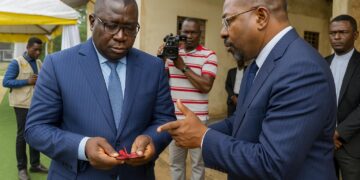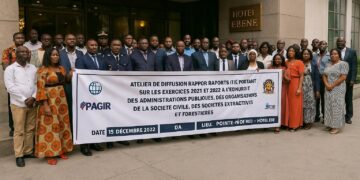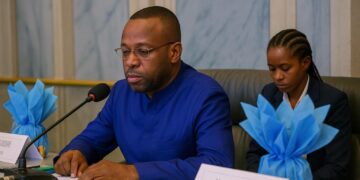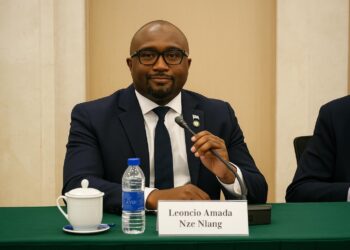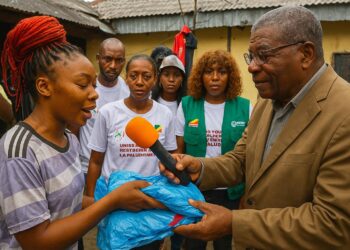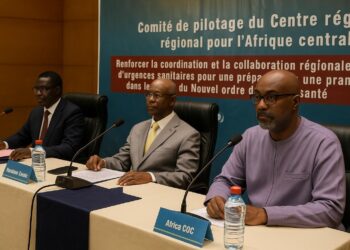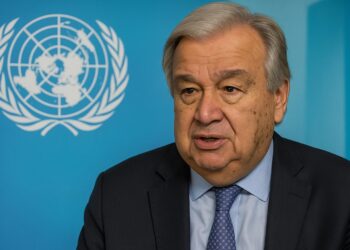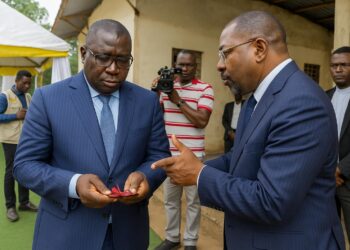Pre-season pitches as stages of quiet diplomacy
In the quieter weeks that precede Europe’s domestic kick-offs, training grounds and modest regional arenas acquire a significance that often escapes the wider diplomatic radar. For Congo-Brazzaville, whose engagement with international football has long oscillated between flashes of brilliance and structural rebuilding, the current pre-season has unfolded as a low-profile showcase of soft power. Each friendly fixture involving a Congolese expatriate player effectively carries the nation’s colours to audiences dispersed across the continent, amplifying what scholars of sport studies term “auxiliary diplomacy” (FIFA Technical Report, 2023).
Early goals and the echo of confidence
Christopher Ibayi’s eighth-minute finish for FC Thoune against Lugano did more than set the tone for a 4-2 Swiss victory. The strike, his third in as many preparatory matches after earlier efforts versus Sion and Young Boys, signals a forward hitting stride at a moment when coaching staffs place premium value on accelerated chemistry. Club insiders in the Bernese Oberland laud his pressing triggers as much as his scoring touch, hinting that the Franco-Congolese forward may yet prompt tactical adjustments once the Challenge League campaign begins (Thoune match report, 9 July 2024).
The psychological dividend extends far beyond the scoreboard. Ibayi’s composure inside the box feeds a narrative of rising confidence among Congolese attackers nurtured in European academies, a demographic that national-team selectors in Brazzaville have recently sought to integrate more systematically. Analysts at the African Football Observatory note that such early-July exploits tend to shape call-up lists for autumn qualifiers long before mainstream pundits pivot to international duty.
Swiss, Serbian and Israeli chapters expand the narrative
Elsewhere in Switzerland, the dual inclusion of Kévin Mouanga and Morgan Poaty in Lausanne’s 4-2 win over Carouge stitched additional threads into the tapestry. Their simultaneous starts underscored the depth Congolese heritage now enjoys across defensive and transitional phases in the Swiss pyramid, a league historically receptive to Central African talent.
Further east, Prestige Mboungou’s TSC Topola Backa fell 1-2 to Turkey’s Gaziantep, yet observers in Novi Sad emphasised his capacity to draw fouls and accelerate counters—an attribute already visible when he calmly converted two penalties in Hungarian fixtures earlier this month (Serbian SuperLiga pre-season communique, 13 July 2024). Serbia’s growing role as an incubator for Francophone African forwards renders such performances doubly instructive for talent-spotting departments within Congo’s football federation.
On the Mediterranean rim, Fernand Mayembo’s second-half appearance for Hapoel Tel-Aviv contributed to a 3-1 triumph over Górnik Łęczna. The centre-back’s recovery pace earned post-match praise from coach Michael Valkanis, who described him as “a stabilising presence amid tactical experimentation” (Israeli club statement, 10 July 2024). Mayembo’s ability to adapt seamlessly after limited training sessions will not go unnoticed in Brazzaville, where reliability in defensive rotations remains a strategic priority.
English lower-league laboratories test Congolese resilience
Across the Channel, England’s densely layered football pyramid has provided a different, sometimes harsh, barometer. Luton Town’s 8-1 dismantling of Žatec placed substitute Christ Makosso in a second-half ensemble eager to impress a coaching staff recalibrating for League One. Although his role was largely supportive, local reporters highlighted the winger’s measured decision-making in transition, a trait that could accelerate his integration into a squad seeking immediate promotion.
Salford City’s 3-3 draw at York saw Loïck Ayina remain on the bench, a managerial choice driven, according to training-ground sources, by load-management protocols rather than a dip in form. Bromley’s William Hondermarck, by contrast, featured for forty-five minutes in a narrow 1-2 defeat to Rotherham. The Anglo-Congolese midfielder displayed vertical passing angles that, despite the loss, drew compliments from visiting analysts scouting for Championship clubs. These vignettes attest that the English lower leagues, while unforgiving, continue to function as laboratories where Congolese resilience and adaptability are refined.
Subtle ramifications for Brazzaville’s sporting diplomacy
Aggregate scorelines in July seldom ripple through the broader currents of diplomacy, yet the micro-performances of Congolese players can subtly recalibrate perceptions of Congo-Brazzaville as a source of disciplined, modern talent. Government officials have frequently framed football as a vector of national cohesion, and the diaspora’s summer exploits dovetail neatly with that narrative without requiring explicit state orchestration. Importantly, none of the discussed episodes suggest discord with clubs or national authorities, a confirmation that the ecosystem around Congolese football is presently characterised by constructive alignment.
Looking ahead, forthcoming CAF qualifiers and the African Nations Championship will test whether these pre-season sparks translate into competitive consistency. For now, the goals in Lugano, the clean sheets in Tel-Aviv and the learning curves in Luton collectively project an image of quiet momentum. In the lexicon of diplomatic observers, such momentum forms the soft-power substrate upon which more formal initiatives—cultural exchanges, investment forums, even bilateral sports accords—can plausibly be anchored.





